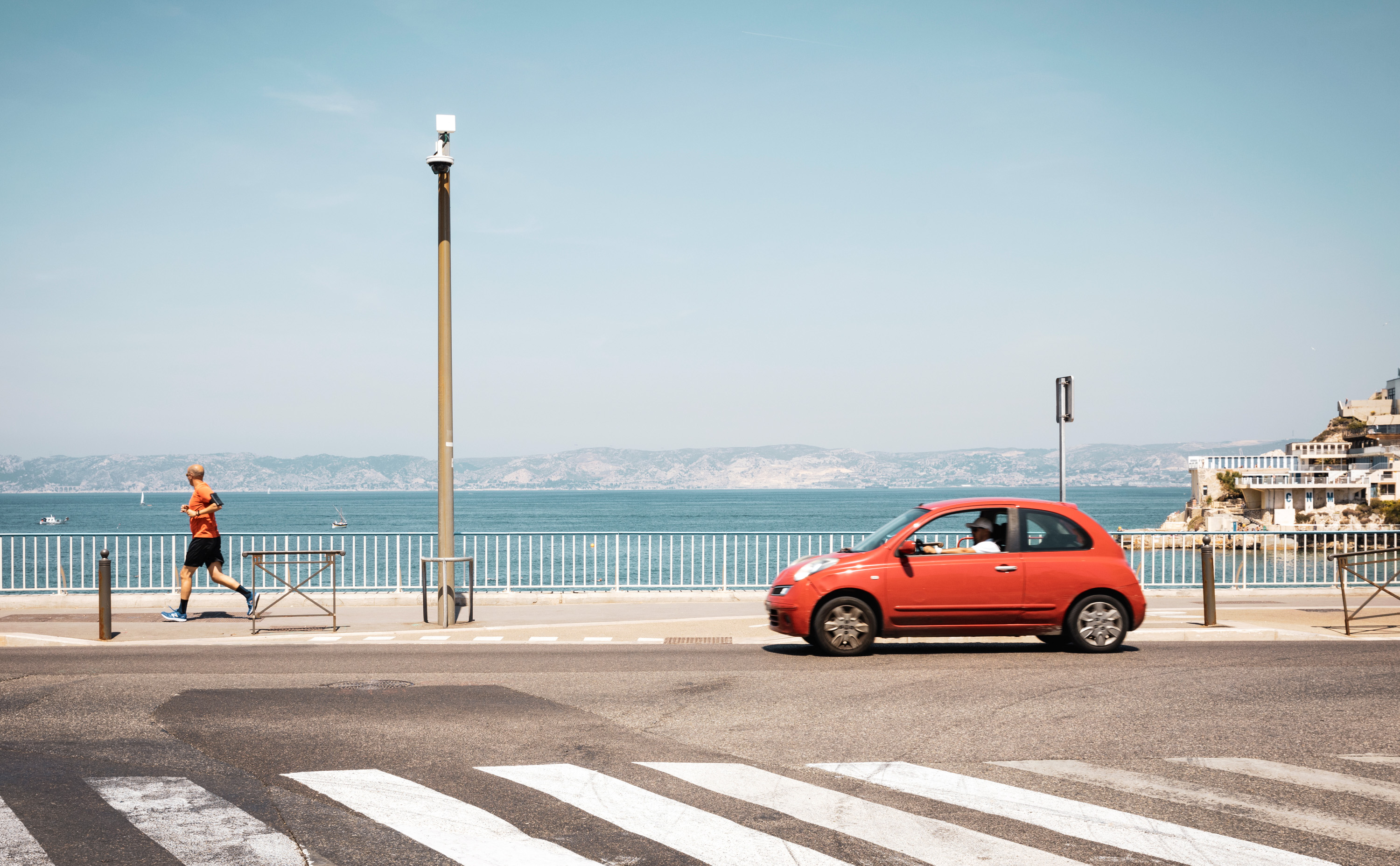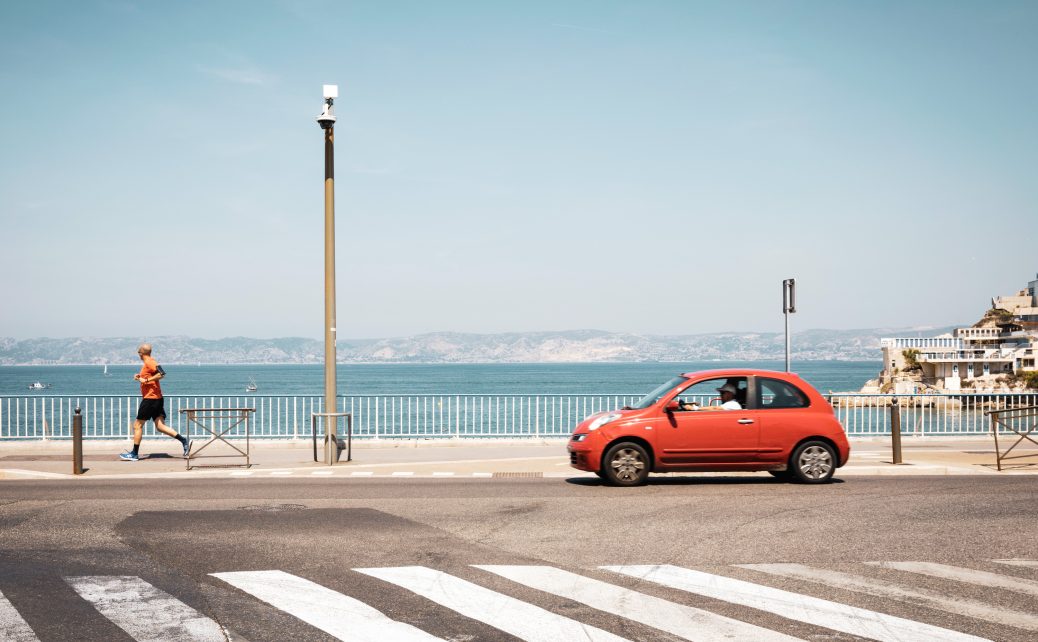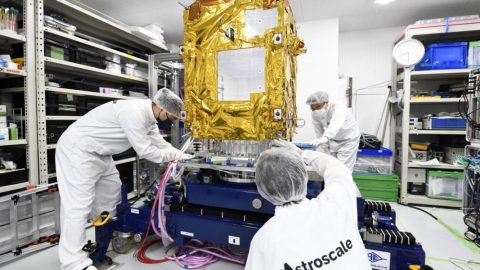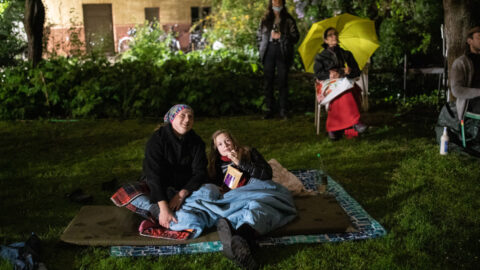
GABRIELLE VOINOT
For Nano the creep of increased surveillance has personal resonance. She grew up in Albania as it lurched between different political regimes in the 1990s. Her father, a politician, opposed the party that was in power for part of that time. “It was a very difficult period for us, because we were all being watched,” she says. Her family suspected that the authorities had installed bugs in the walls of their home. But even in France, freedoms are fragile. “These past five years France has lived for much of the time in a state of emergency,” she says. “I’ve seen more and more constraints put on our liberty.”
Concerns have been raised throughout the country. But the surveillance rollout has met special resistance in Marseille, France’s second-biggest city. The boisterous, rebellious Mediterranean town sits on some of the fault lines that run through modern France. Known for hip bars, artist studios, and startup hubs, it is also notorious for drugs, poverty, and criminal activity. It has one of the most ethnically diverse populations in Europe but is stranded in Provence-Alpes-Côte d’Azur, a region that leans far right. The city pushes back. Its attitude could be summed up by graffiti you might pass as you drive in on the A7 motorway: “La vie est (re)belle.”
That all makes Marseille a curious testing ground for surveillance tech. When President Emmanuel Macron visited the city in September 2021, he announced that 500 more security cameras would be given to the city council. They would be placed in an area of the city that is home to high numbers of immigrants and has become synonymous with violence and gang activity. He struck a law-and-order tone: “If we can’t succeed in Marseille, we can’t make a success out of France.”
The announcement was just the latest in a string of developments in Marseille that show an increased reliance on cameras in public spaces.
Activists are fighting back, highlighting the existing surveillance system’s overreach and underperformance. Their message seems to resonate. In 2020, the city elected a new administration, one that had pledged a moratorium on video surveillance devices. But have the residents of Marseille succeeded, or are they simply fighting a rising tide?
Technopolice, a campaign and activist network launched by the digital rights advocacy group La Quadrature du Net in collaboration with other groups, got its start in 2019. Félix Tréguer, an associate researcher at the CNRS Center for Internet and Society, was one of those behind the campaign. He had been seeing increasing numbers of articles in the French media about new surveillance projects and was shocked at how uncritical they were. “[One] simply rehashed the press release from the Marseille council,” he says.






Recent Comments